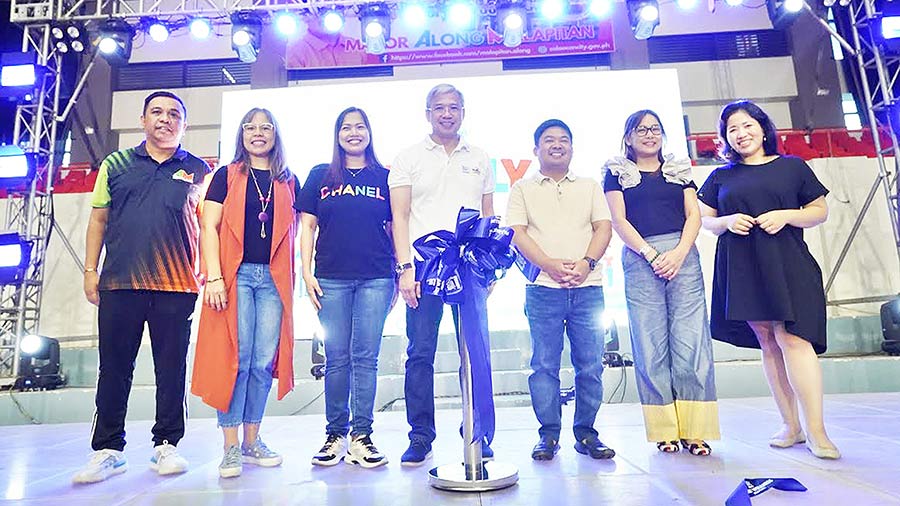NESTLí‰ Philippines, as the Kasambuhay for Good and a partner in family wellness, recently concluded its Family Wellness Festival today at the Caloocan Sports Complex. The event’s aim was to educate thousands of families about good nutrition, fostering a healthier and happier lifestyle. The all-day festival welcomed 3,000 Batang Kankaloos and residents from nearby cities who registered online at barangaynestle.com.ph.
The Family Wellness Festival, part of Nestlé Philippines’ Nutrition Month celebration, emphasized the company’s commitment to making nutritious food and beverages affordable and accessible for every family member.
“We at Nestlé Philippines believe that good nutrition starts at home. We are bringing Nestlé Family Wellness Festival closer to communities as we strive to provide residents of Caloocan City with the nutrition information and wellness tips that can help them improve their health,” said Joey Uy III, Senior Vice President and Head of Corporate Affairs of Nestlé Philippines.
Partnering with local government that shares similar goals with their ongoing nutrition programs will better inform and encourage residents of Caloocan City to prioritize their family’s well-being.
Caloocan City Mayor Along Malapitan expressed his enthusiasm for the event, stating, “We’re delighted to collaborate with Nestlé Philippines to bring the Family Wellness Festival to our community. This is an opportunity for families to come together and enjoy a day of fun, health, and togetherness.”
Nestlé Philippines also invited experts from its partner organizations to share their insights on key topics that touch on the overall wellness of individuals, families, and the planet. The Department of Science and Technology — Food and Nutrition Research Institute (DOST-FNRI) talked about promoting nutrition and health for the family, while the Department of Agriculture shared tips on starting your own veggie garden based on its Food Always in the Home (FAITH) program.
In a world where environmental consciousness and self-sufficiency are paramount, the Bureau of Plant Industry (BPI) in the Philippines is at the forefront of teaching individuals how to plant with a purpose.

At the heart of their mission is the concept of Faith — Faith in the ability to ensure sustainable food sources within the household. In an exclusive interview with Malaya Business Insight, agriculturist Niña Reginaldo-Rosales explored the BPI’s commitment to fostering home gardening, especially in the context of limited space, and introduces various methods and essential tips for successful cultivation.
In a country like the Philippines, where arable land can be scarce, Reginaldo-Rosales said that cultivating a sustainable food source can be challenging. However, the BPI emphasized the importance of Faith in this endeavor. It’s all about ensuring that households have a continuous supply of fresh vegetables, even with minimal land available.
The BPI advocates for various vegetable gardening systems, ensuring flexibility for individuals with different needs and resources. Reginaldo-Rosales also said that these systems include container gardening, vertical gardening, and even hydroponics, each catering to specific circumstances.
Container gardening is a versatile approach that requires only sunlight and water.
Reginaldo-Rosales added that one doesn’t need extensive land; a pot can suffice. She also added that tomatoes, eggplants, and various leafy greens can thrive in containers, offering a convenient solution for those with space constraints.
For those without access to arable soil, hydroponics is a game-changer, Reginaldo-Rosales said. It allows one to grow vegetables using nutrient solutions and water, eliminating the need for traditional soil. This method is especially suitable for growing crops like mustards, pechay, and lettuce, which can be harvested in as little as 30 days.
The COVID-19 pandemic underscored the importance of self-sufficiency. With job losses and limited access to fresh produce, many turned to home gardening, according to Reginaldo-Rosales. Recognizing this trend, the government launched the National Urban and Peri-Urban Agriculture Program, supporting urban agriculture initiatives.
The BPI actively participates in this movement by distributing seeds and providing training and assistance. Reginaldo-Rosales said that they collaborate with communities to establish urban gardens, promoting not only vegetable cultivation but also the consumption of nutritious homegrown produce.
Reginaldo-Rosales noted their success story is the Maggi Garden or “Maggi Sarap Sustansya.” It features a diverse array of vegetables, rice porridge, and Pinakbet, promoting a balanced and sustainable diet. The BPI’s involvement includes providing seeds, training, and even cooking demonstrations to further food safety and nutritional awareness.
The BPI believes in the potential for home gardening to thrive in various regions of the Philippines. Reginaldo-Rosales said that their commitment to education and support ensures that more individuals can harness the benefits of cultivating their own food.
As the BPI continues its efforts, the focus remains on encouraging Faith in sustainable food sources. They provide essential tips on conventional and container gardening, guiding individuals on what to plant and how to maximize success.





